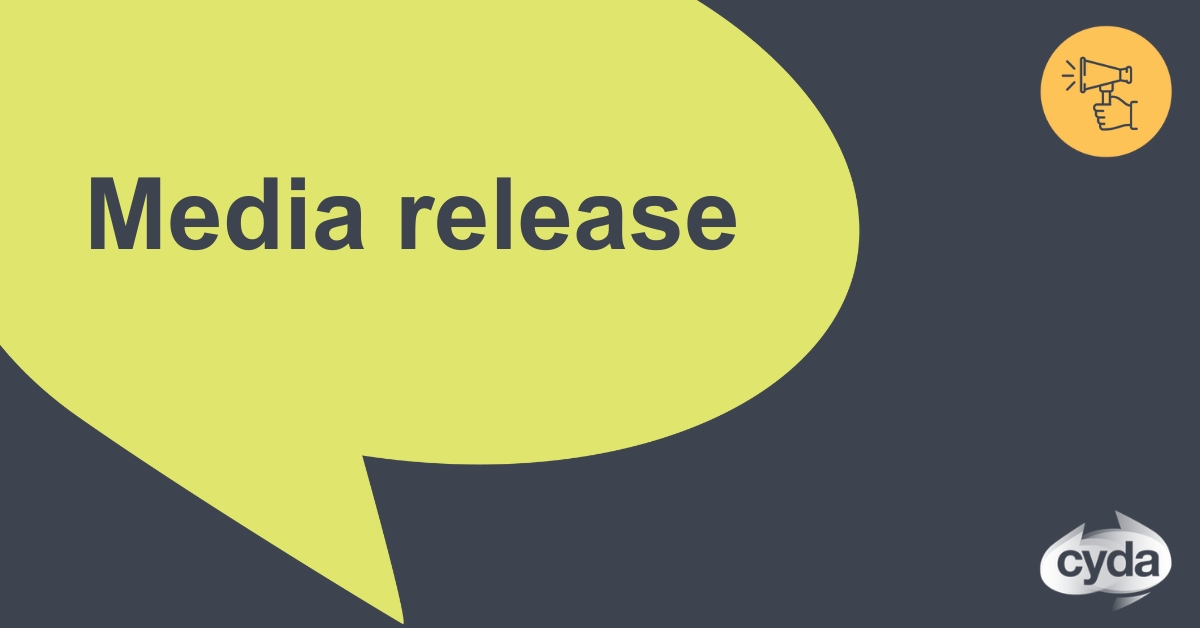The NDIS
The Federal Budget has confirmed the government’s announcements of an 8 per cent growth target by 2026 and an injection of funds into the NDIA for new reform. Minister for the NDIS and Government Services Bill Shorten, has promised again that “The NDIS is here to stay”.
CYDA chief executive officer Skye Kakoschke-Moore said:
"We are very glad to hear Minister Shorten’s assurance that the NDIS is here to stay. However, what we need now is more detail from the government on how they plan to meet their 8 per cent growth target without reducing disabled people’s access to supports.
“We welcome the confirmation of $732.9 million to improve the effectiveness and sustainability of the NDIS. Young people with disability and their families have a lot to say about ways to make the NDIS work more efficiently and improve the overall user experience. We look forward to working with the NDIA on making those happen.”
JobSeeker, Youth Allowance and the youth rate of the Disability Support Pension
The Federal Budget includes a commitment to raise income support payments, including Youth Allowance and the youth rate of the Disability Support Pension, by $20 a week.
Ms Kakoschke-Moore said: “It’s a small start in the direction we need to go. However, we are very concerned that the raise is well below the recommendation of the Economic Inclusion Advisory Committee of at least $128 a week to meet basic needs.
“That the boost won’t take effect until September will also be a blow for young people with disability currently struggling to get by on these payments. Given the budget is now in surplus, we advocate for a further rise in payments to a more liveable rate as a matter of urgency.”
Early childhood - Lack of investment in workforce
The Federal Budget includes a $72.4 million investment in skills development and training for Australia’s early childhood education workforce.
Ms Kakoschke-Moore said:
“We welcome this investment, as our early educators are critical to an inclusive early childhood experience for children with disability, but it needs to be part of a wider package of reforms. Educators need access to resources, support and flexibility to deliver universally accessible, inclusive and affordable high quality early learning for all children.”
Students with disability in universities
The Federal Budget includes $17.7 million over four years for the Disability Support Program to assist universities to better enable students with disability to access, participate and succeed in higher education.
Ms Kakoschke-Moore said:
“We appreciate the investment in higher education which will benefit young people with disability. However, spread across all Australian universities, this is a relatively small amount of funding that will not go far to ensure real inclusive access to higher education for all students. We would welcome further investment in universal design for learning in higher education settings.”
For more information about the recommendations CYDA endorses to implement universal access to higher education can be found here.
Funding for Australian Disability Enterprises
The Federal Budget included $41 million over 3 years to “increase the capacity of the supported employment sector to support people with disability” and $11.7 million over 4 years to “establish a disability employment advocacy and information program for supported employees”.
Ms Kakoschke-Moore said:
“We are concerned that funding continues to be committed to the improvement of Australian Disability Enterprises, also called sheltered workshops, without a real plan to phase out exploitative employment practices. ADE’s provide segregated employment for people with disability, where employees can legally be paid well below minimum wage. People with disability should be paid a fair wage for their work and be supported to access employment opportunities in the open market.”
The end of Parents Next and raising the age for Parenting Payment
The Federal Budget includes much needed measures to financially support parents and families. The controversial Parents Next program has been scrapped and the maximum age for children whose parents can receive the Parenting Payment has increased from 8 to 14.
Ms Kakoschke-Moore said:
“We are very pleased with the measures taken to financially support families who are doing it tough. This will be an enormous relief for parents moving from JobSeeker to the significantly higher Parenting Payment.
“We do not support mutual obligations for anyone receiving income support, so it is excellent to see that the government has decided to stop the Parents Next program. We would love to see similar measures taken in regard to young people with disability who are still obligated to engage with disability employment services that are not meeting their needs in order to receive income support for food and rent.”
For media enquires please contact:
Naomi Chainey – Media and Communications Advisor
Children and Young People with Disability Australia
Phone: 0401 302 068
Email: [email protected]


